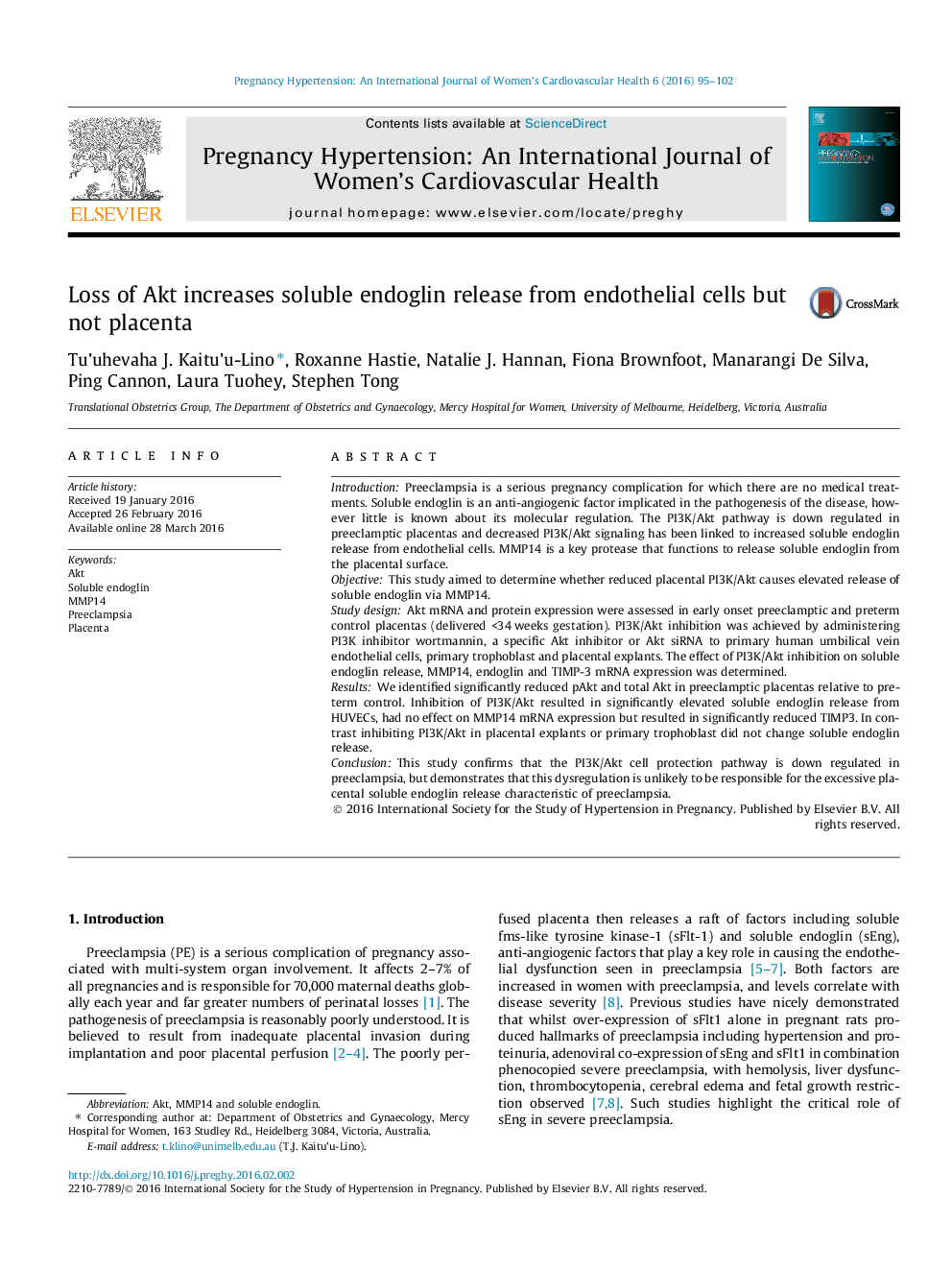| Article ID | Journal | Published Year | Pages | File Type |
|---|---|---|---|---|
| 3005397 | Pregnancy Hypertension: An International Journal of Women's Cardiovascular Health | 2016 | 8 Pages |
•pAkt and Akt are significantly reduced in preeclamptic placenta.•PI3K/Akt inhibition increases soluble endoglin release from HUVECs.•PI3K/Akt inhibition does not alter MMP14 expression.•PI3K inhibition down-regulates TIMP3.•PI3K/Akt inhibition does not alter soluble endoglin release from placenta.
IntroductionPreeclampsia is a serious pregnancy complication for which there are no medical treatments. Soluble endoglin is an anti-angiogenic factor implicated in the pathogenesis of the disease, however little is known about its molecular regulation. The PI3K/Akt pathway is down regulated in preeclamptic placentas and decreased PI3K/Akt signaling has been linked to increased soluble endoglin release from endothelial cells. MMP14 is a key protease that functions to release soluble endoglin from the placental surface.ObjectiveThis study aimed to determine whether reduced placental PI3K/Akt causes elevated release of soluble endoglin via MMP14.Study designAkt mRNA and protein expression were assessed in early onset preeclamptic and preterm control placentas (delivered <34 weeks gestation). PI3K/Akt inhibition was achieved by administering PI3K inhibitor wortmannin, a specific Akt inhibitor or Akt siRNA to primary human umbilical vein endothelial cells, primary trophoblast and placental explants. The effect of PI3K/Akt inhibition on soluble endoglin release, MMP14, endoglin and TIMP-3 mRNA expression was determined.ResultsWe identified significantly reduced pAkt and total Akt in preeclamptic placentas relative to preterm control. Inhibition of PI3K/Akt resulted in significantly elevated soluble endoglin release from HUVECs, had no effect on MMP14 mRNA expression but resulted in significantly reduced TIMP3. In contrast inhibiting PI3K/Akt in placental explants or primary trophoblast did not change soluble endoglin release.ConclusionThis study confirms that the PI3K/Akt cell protection pathway is down regulated in preeclampsia, but demonstrates that this dysregulation is unlikely to be responsible for the excessive placental soluble endoglin release characteristic of preeclampsia.
